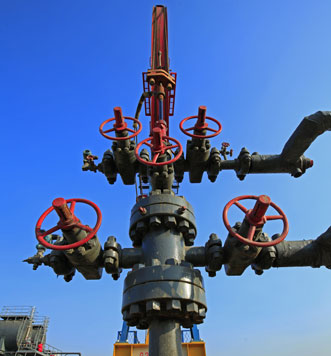CERTIND has competent personnel for auditing and certifying many standards tailored to various needs, including: Medical Devices ISO 13485, TRANSLATION SERVICES ISO 17100, PETROLEUM, PETROCHEMICAL AND NATURAL GAS INDUSTRIES ISO/TS 29001, MANAGEMENT SYSTEMS FOR EDUCATIONAL ORGANIZATIONS ISO 21001, HEALTH CARE SERVICES EN 15224, CUSTOMER CONTACT CENTRES EN 15838, AUTOMOTIVE INDUSTRY IATF 16949, AQAP 2110 - NATO Quality Assurance Requirements for Design, Development And Production .
-
-
27-29 George Enescu Str., Bucharest 1, Romania
Palatul UGIR 1903
MEDICAL DEVICES ISO 13485
ISO 13485 is an international standard that defines the requirements for a quality management system applicable to medical devices sector. The standard is based on the requirements of ISO 9001 customized to medical devices sector.
It is intended for organizations involved in one or more stages of the life-cycle of a medical device, including design and development, production, storage and distribution, installation, or servicing of a medical device and design and development or provision of associated activities.
Certification to ISO 13485 confirms the organization’s commitment to respect legal and contractual requirements applicable, as well as the commitment to mitigate human health related risks.


TRANSLATION SERVICES ISO 17100
International standard ISO 17001 defines the requirements for quality translation services – namely requirements addressed to human and technical resources, quality management and project management.
Certification to ISO 17100 represents a confirmation of the technical and organizational capacity of the organization to provide translation services in line with the requirements of the customers.
PETROLEUM, PETROCHEMICAL AND NATURAL GAS INDUSTRIES ISO/TS 29001
ISO/TS 29001 is an international standard developed by ISO together with the oil and gas industry representatives. It is based on the requirements of ISO 9001 supplemented with specific requirements applicable for this particular sector.
It is addressed to organizations working in the design, development, installation, exploitation and service of plants and equipment in the petroleum, petrochemical and natural gas industry.


MANAGEMENT SYSTEMS FOR EDUCATIONAL ORGANIZATIONS ISO 21001
ISO 21001 establishes basic requirements for providers of education and training services to offer a generic model of professional quality practice as well as a common reference for learning service providers and their clients in the design, development and implementation of training programs.
HEALTH CARE SERVICES EN 15224
The European Standard EN 15224 specifies requirements for a quality management system based on ISO 9001 with supplementary requirements for healthcare.
This standard addresses suppliers of healthcare services: hospitals, nursing homes, pharmacies, medical rehabilitation centres, dental clinics, medical cabinets, medical laboratories, etc. and focuses on aspects such as clinical risk management and patient safety.


CUSTOMER CONTACT CENTRES EN 15838
EN 15838 is an European standard that defines the requirements for the provision of services in customer contact centres. The standard is applicable to organizations that hold in their own structure or provide for third parties, call-centre services. The implementation of the standard is meant to provide benefits to the organizations by improving connection with customers, enhancing efficiency and reducing staff rotation.
AUTOMOTIVE INDUSTRY IATF 16949
IATF 16949 is a standard that sets the requirements for a Quality Management System (QMS), specifically for the automotive sector. This standard is applicable for organizations that provide products and/or services for the automotive industry, aiming at continuous improvement of activity and prevention of manufacturing defects.


AQAP 2110 - NATO Quality Assurance Requirements for Design, Development And Production
The standard is intended to be used by providers of military services and/ or defence services.
A certification in accordance to AQAP 2110 represents the confirmation that an organizations has implemented and respects (conforms to) the requirements of a quality management system specific to the military sector.
CERTIND is designated by the Ministry of National Defence as a NATO economic agent (Certificate no. 0483).
1. Submitting the application for certification to CERTIND
2. Drafting and sending the certification offer to the CLIENT
3. Contracting - following the Clients’ acceptance of the offer
4. Assignment of the audit team by CERTIND
5. Audit planning - by mutual agreement between the auditor and client
6. Certification audit - is carried out in two stages: Stage I + Stage II
7. Granting the conformity certificate
8. Surveillance I Audit
9. Surveillance II Audit
10. Recertification
What is ISO?
ISO is an independent, non-governmental international organization with the mission to develop international voluntary standards relevant to today's market. For more information, visit www.iso.org.
What is a standard?
An international standard provides world class specifications for products, services and systems to ensure quality, safety and efficiency, thus helping to facilitate international trade.
What is RENAR?
Romanian Accreditation Association - RENAR, is a non-governmental, non-profit organization and is formally recognized as unique national accreditation body. More information on www.renar.ro.
What is IAS?
IAS-International Accreditation Service, from the United States of America is a non-profit corporation with the status of an accreditation body and has been providing accreditation services since 1975. More information at www.iasonline.org
What is FSSC 22000?
FSSC 22000 is a non-profit foundation based in the Netherlands and holds an independent certification scheme in the field of food safety. More information at www.fssc.com
What is EMAS?
EMAS is the European environmental management tool designed to support organizations in the continuous improvement of environmental performance integrating the concept of sustainable development. More information at https://green-business.ec.europa.eu/eco-management-and-audit-scheme-emas/about-emas_en
What is a management system?
A management system represents the framework through which an organization sets its own policies and procedures to ensure that it can carry out all the tasks necessary to achieve its objectives and promote continuous improvement. Management systems allow an organization to establish and use best practices in conducting its own business. Management systems can be: Quality (ISO 9001), Environmental (ISO 14001), Food Safety (ISO 22000), Occupational Health and Safety (OHSAS 18001 / ISO 45001), Information Security (ISO / CEI 27001) etc., as well as combinations of these systems (integrated systems).
What is an integrated management system?
An integrated management system combines several management system standards (eg ISO 9001 + ISO 14001 + ISO 45001) into a single system to be exploited and managed more easily.
What is implementation?
Implementing a management system means establishing the processes that take place in the organization and harmonizing the organization's activity with the requirements of the reference standard(s).
What is the difference between “accreditation” and “certification”?
Accreditation: Accreditation is the formal recognition of a conformity
assessment body (Certification Body) by an accreditation authority, that
the Certification Body has the technical and organizational competence
to perform a specific services in accordance with the technical
standards and regulations described in the accreditation field.
Certification: Certification is the process by which an organization is
assessed by a third party (Certification Body) to provide a written
warranty (conformity certificate) that a product, process, system, or
person meets the requirements of the reference standard(s).
What is the price of a certification?
Certification costs vary from one organization to another, depending on the field of activity, the number of employees, the number of locations of the organization and the number of standards for which certification is sought. For a customized offer please send the offer form.
Is the conformity certificate issued by CERTIND SA recognized in other countries?
If the certificate is issued under accreditation by CERTIND SA, the certificate should be recognized in those countries whose national accreditation bodies are signatories to the multilateral agreement EA, IAF and ILAC.
What is the validity of a certificate?
A conformity certificate is valid for 3 years, subject to annual surveillance audits. Before the certificate expires, the recertification audit takes place and the entire certification cycle is resumed.
Can a certificate be suspended/ withdrawn?
Yes. If the certified client incorrectly uses the conformity certificate(s) or the certification mark, does not allow the performance of surveillance audits or the findings of the surveillance audit is that the organization no longer complies with the requirements of the reference standard(s), the Certification Body may suspend / withdraw the certificate.
Can I get the certificate if I do not have the management system implemented?
No. If the management system in your organization does not meet the requirements of the applicable standard(s), the Certification Body will not grant you the conformity certificate(s).
Do I need certification?
You need certification if you want:
• permanently improve performance by coordinating and managing the
organization in a systematic and planned manner;
• develop your business better through a clear and predictable
evolutionary environment;
• better document the processes / activities to ease their
understanding;
• ease the work of new employees through documented procedures;
• motivate and raise awareness of staff by defining key roles and
responsibilities;
• involve employees in achieving the organization's goals;
• reduce costs by increasing efficiency and productivity, by better
control of activity and flows;
• increase productivity by improving processes;
• keep control of non-compliant products / services;
• reduce the number of complaints;
• participate in auctions;
• continually improve your work by conducting internal audits.
What are the steps to obtaining certification?
1. Submitting the application for certification to CERTIND
2. Drafting and sending the certification offer to the CLIENT
3. Contracting - following the Clients’ acceptance of the offer
4. Assignment of the audit team by CERTIND
5. Audit planning - by mutual agreement between the auditor and
client
6. The certification audit - is carried out in two stages: Stage I +
Stage II
7. Granting the conformity certificate
8. Surveillance I Audit
9. Surveillance II Audit
10. Recertification
Is CERTIND SA an accredited certification body?
CERTIND SA is a Notified Body for various EU directives?
CERTIND SA is a Notified Body, having the notification number NB 2174, for Regulation (EU) no. 305/2011 - Construction products.
Request a price offer
To receive a price offer, please fill out our form with the necessary data about your company and a CERTIND
representative will contact you as soon as possible.


